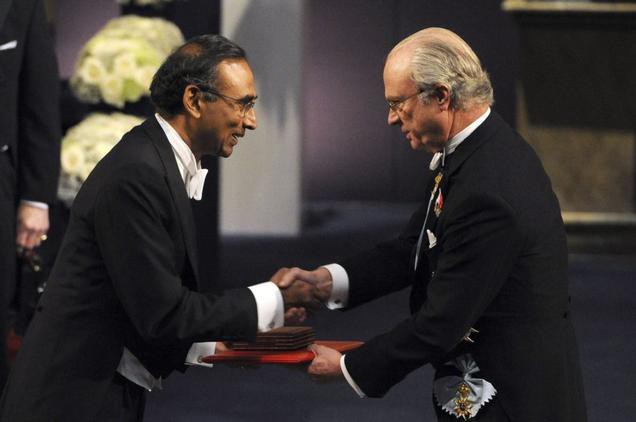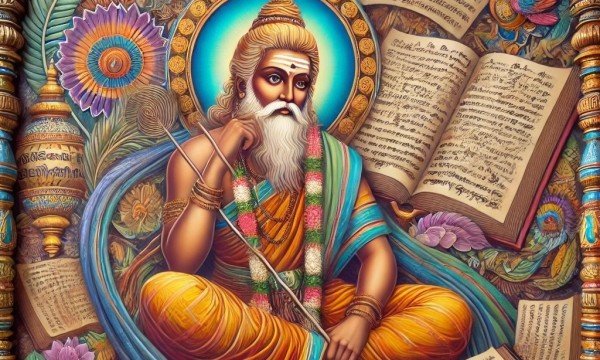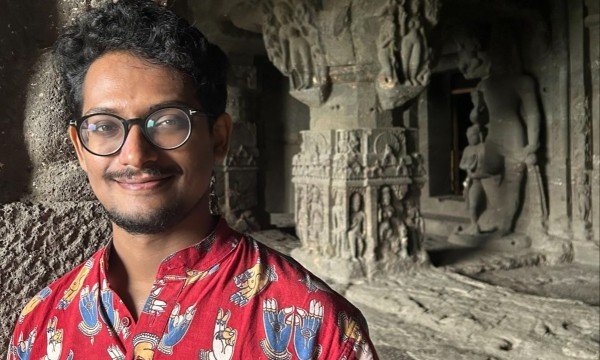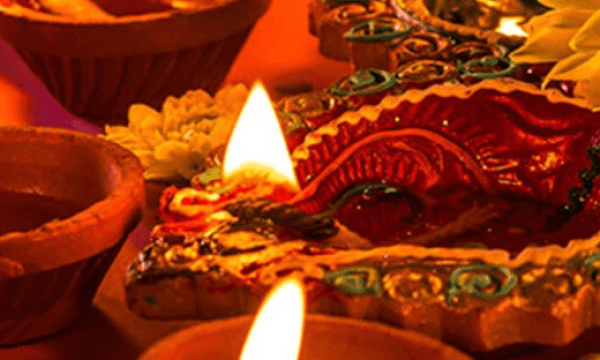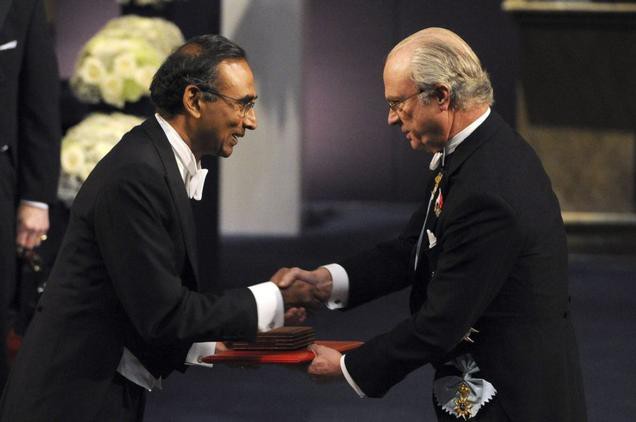
The Nobel prize is a set of annual international awards bestowed in the fields of Literature, Medicine, Physics, Chemistry, Peace and Economics by the Swedish and Norwegian committees. The will of the Swedish inventor Alfred Nobel established the prizes in 1895. The Nobel Prize is widely regarded as the most prestigious award in recognition of cultural and/or scientific advances.
Erstwhile Tamil society’s proclivity has been more towards the Arts, Religion, Siddha, Science and Philosophy. Today the propensity is more towards Engineering, Medicine, Management and plenty others.
Tamils honoured with the Nobel Prize in basic sciences:
Chandrasekhara Venkata Raman, (1888–1970) fondly called as Sir C.V. Raman was born in Thiruvanaikaval, Triruchirapalli, Tamil Nadu. A traditionally-dressed man, his ground breaking work in the field of light scattering earned him the 1930 Nobel Prize for Physics. He discovered that when light traverses a transparent material, some of the deflected light changes in wavelength. This phenomenon is now called Raman scattering.
His work on the scattering of light and for the discovery of the Raman effect- which confirmed that light is made up of photons or elementary particles that form the basic unit of light, are highly acclaimed. The Raman effect is considered an important tool in analyzing the composition of solids, liquids & gases.
Honoured with India’s highest civilian award-Bharat Ratna, he was the first Asian and first non-white to receive any Nobel prize in the sciences. He was also the first to investigate the harmonic nature of the sound of the Indian drums such as the tabla and the mridangam.
Subrahmanyan Chandrasekhar, (1910–1995) was an Indian American Astrophysicist, born in a Tamil family in Lahore, Punjab, India. He shared the 1983 Nobel Prize for Physics with William A.Fowler, for his mathematical theory of black holes, which was a key discovery that led to the currently accepted theory on the later evolutionary stages of massive stars. The Chandrasekhar limit is named after him. The limit describes the mass of a white dwarf star could not exceed 1.44 times that of the Sun.
Recipient of India’s second highest civilian award-Padma Vibhushan, he is an alumni of Presidency college, Madras and the University of Cambridge. He was highly regarded for his studies on the physical processes important to the structure and evolution of stars. Asteroid 1958 Chandra is named after him. In 1999, NASA named the third of it’s four ‘great observatories’ after Chandrasekhar.
Chandrasekhar was the nephew of Nobel laureate Sir C.V. Raman. He spent most of his career(1937–1995) at the University of Chicago and guided 50 students to their PhDs.
Venkataraman Ramakrishnan(born 1952) is an Indian-born American and British structural biologist, who shared the 2009 Nobel Prize in Chemistry with Thomas A. Steitz and Ada E. Yonath, “for studies of the structure and function of the ribosome”.
The son of scientist parents, Ramakrishnan was born in Chidambaram, an ancient temple town in Tamil Nadu, India best known for its temple of Nataraja, the lord of dance. He obtained his Ph.D degree from Ohio University.
In a lecture in January 2010 at the Indian Institute of Science, Bangalore, he revealed that he failed to get admitted to any of the Indian Institutes of Technology(IITs) or the Christian Medical College(CMC), Vellore, Tamil Nadu, the finest professional institutes in India.
Honoured with India’s second highest civilian award-Padma Vibhushan, he currently works at the MRC laboratory of Molecular Biology in Cambridge, England.
Fellows of the Royal society, the stealthily influential 3 have common names. However, the three winners have a connect beyond names. Their roots are in Tamil Nadu and they share a family background conducive to intellectual & scientific pursuits.
Excerpt from Venkataraman Ramakrishnan’s interview to Nobelprize.org evidences it- “Unusually for an Indian man of his generation, my father, being aware of my mother’s intellectual abilities, encouraged her to go abroad by herself to obtain a Ph.D. She obtained a fellowship in McGill University to do a Ph.D. in psychology. Probably because she felt guilty about leaving my father and me behind, she finished her Ph.D. in under 18 months, which must be something of a record.”







